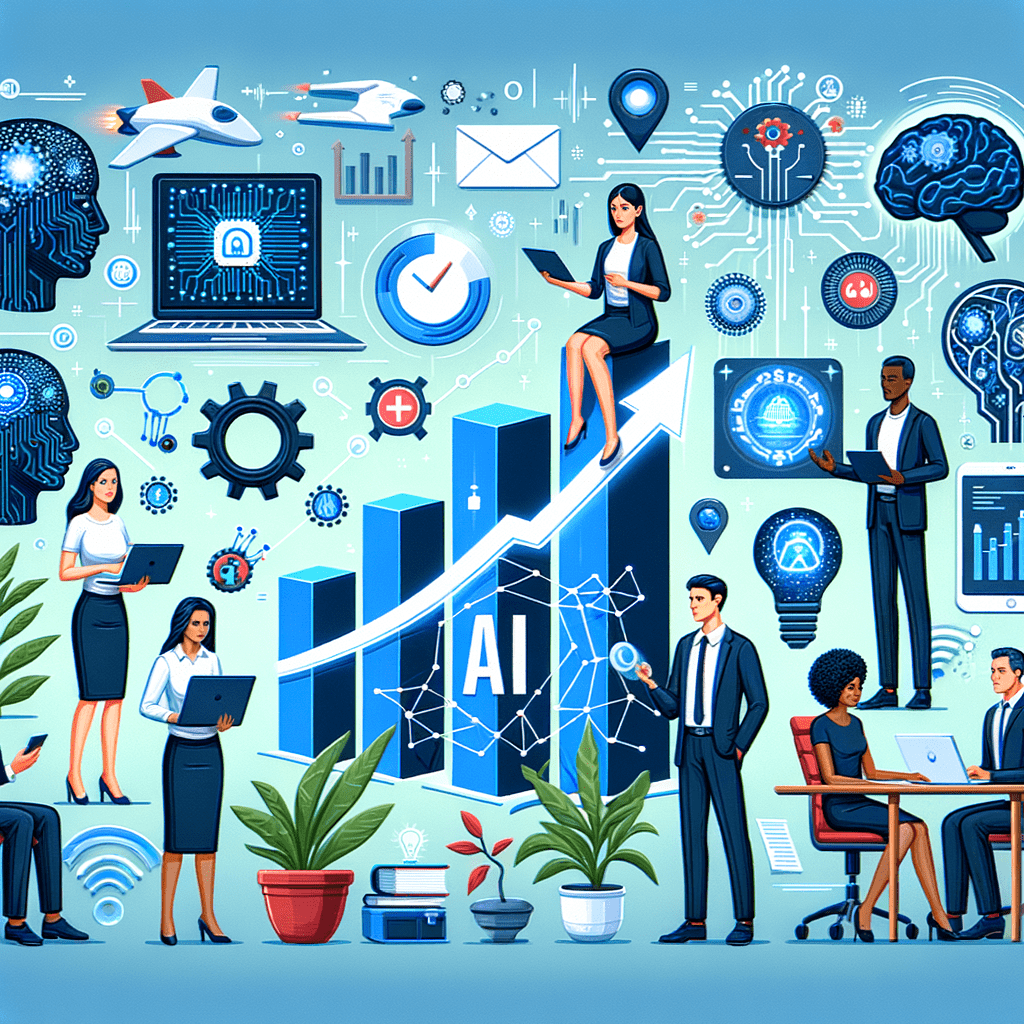As a consultant, you juggle multiple projects, client demands, and the pressure to deliver exceptional results. Finding ways to boost efficiency is critical for success. AI-powered tools have emerged as valuable resources, offering various benefits that enhance service delivery for consulting services. This post explores how AI tools can elevate your consulting business and what to consider before adopting them.
AI Tools for Consultants: Separating Hype from Reality
While productive AI tools exist for several use cases, not all AI tools are created equal. AI can automate certain mundane tasks, freeing up valuable time. However, a consultant’s core value lies in specialized human insights and client relationships.
AI is an excellent support tool that can significantly elevate your consulting business. Artificial intelligence tools offer consultants help with data analysis and research as well as automate business processes.
Streamlining Data Analysis and Visualization
Data analysis is crucial for consultants, but faster results are always desirable. Tools like Power BI, Tableau, and IBM Watson can reduce hours spent on analysis through efficient data integration and visualization. These AI platforms offer valuable insights, identifying key patterns and facilitating data-backed storytelling.
AI-powered tools help consultants analyze complex data and extract valuable insights. With AI-generated visuals, recommendations are easier to understand, improving decision-making.
Automating Mundane Administrative Tasks
Consultants often spend considerable time on administrative tasks. AI tools like Otter.ai offer real-time transcription services, automating meeting documentation. This not only improves time management but also provides AI-powered functions, allowing you to query transcripts using voice commands rather than manual searches.
This frees you to focus on client conversations. AI solutions like Notion AI automate research and integrate project information. Simple dashboards make it easier to manage client team workflow.
An effective CRM (customer relationship management system) ensures projects progress efficiently. Salesforce Einstein, an AI-powered CRM, can greatly improve efficiency in managing customer data analysis and generating valuable insights.
Improving Communication
Client communication is fundamental to project success. Clients have diverse communication styles. Understanding client personality is beneficial. AI tools for consultants, like Crystal Knows, analyze client personality to suggest effective communication strategies. This helps structure reports and tailor email communication.
Elevating Content Creation
Deliverables often require supporting information, such as industry statistics. AI writing tools, like Copy.ai and Frase.io, provide readily available research information. These AI content tools suggest relevant SEO terms and assist with creating various content formats. AI writing tools can help produce high quality client solutions and compelling narratives that drive positive client outcomes.
Visuals enhance content, and tools like Stockimg.ai generate images and videos based on user-inputted keywords. Creating high-quality visuals adds impact to client proposals and saves money on professional photography. Consulting firms can harness AI for diverse needs, from social media management to robotic process automation, optimizing customer experiences, and fostering customer loyalty.
AI Tools for Consultants: Evaluating the Options
Choosing the right AI tool requires careful evaluation. Comparing services helps consulting firms make informed decisions and allocate budgets wisely. Natural language processing and machine learning algorithms empower AI technologies to deliver unprecedented value across various business sectors, including human resources, supply chain management, and more. Large language models are transforming how consultants analyze data and provide clients with tailored recommendations based on real-time insights.
| Tool | Description | Pricing | Best For |
|---|---|---|---|
| ChatGPT | AI chatbot for conversations, content generation, and code generation. | Free and paid options | Content creation, data analysis, code generation |
| Copy.ai | AI-powered copywriting for client content creation. | Paid plans | Content marketing |
| IBM Watson | An AI platform with NLP, ML, and computer vision tools. | Paid plans | Data analysis, visualization |
| Salesforce Einstein | An AI-powered CRM for managing customer data analysis. | Paid plans | CRM, data analysis |
| UiPath | AI tool for automating routine task management. | Paid plans | Workflow efficiency |
| Tableau | Data visualization tool. | Paid plans | Data visualization |
| Notion AI | AI research integration into deliverables. | Paid plans | Client solutions and proposals |
FAQs about ai tools for consultants
How can AI be used in consulting?
AI has many applications in consulting, from automating research and analysis to improving client communication and project management. AI tools can also help generate insights from large datasets and enhance the overall customer experience. Consulting firms are increasingly integrating AI into their services to streamline business processes, automate routine tasks, and generate valuable insights for their clients.
What AI does McKinsey use?
McKinsey invests in AI, leveraging custom solutions and third-party tools like Azure and Palantir. They use AI to process vast amounts of data and identify key advantages for their clients.
Can ChatGPT replace consultants?
While ChatGPT can automate tasks, consultants provide complex strategic thinking and nuanced client interactions. These are aspects AI cannot fully replicate. Human consultants bring expertise and adaptability to client solutions that AI, while a powerful tool, cannot match.
How to use generative AI in consulting?
Generative AI can revolutionize consulting functions like market research. It allows consultants to process and analyze massive datasets, identifying hidden trends. This improves project outcomes and helps to provide clients with more effective and data-driven recommendations.
Generative AI can be employed for tasks like process automation, analyzing social media trends, and supply chain optimization. It can also analyze client’s business processes to create bespoke AI solutions.
Concluding Thoughts: Maximizing Consultant Productivity
AI tools for consultants offer significant potential. Strategically used, they become excellent assistants for improving time efficiency. Human expertise remains crucial. However, combining human intellect with the power of AI tools creates exciting new possibilities for consulting firms. By embracing and refining AI practices, consulting firms can continue to improve results, enhance client services, and achieve better client outcomes.






